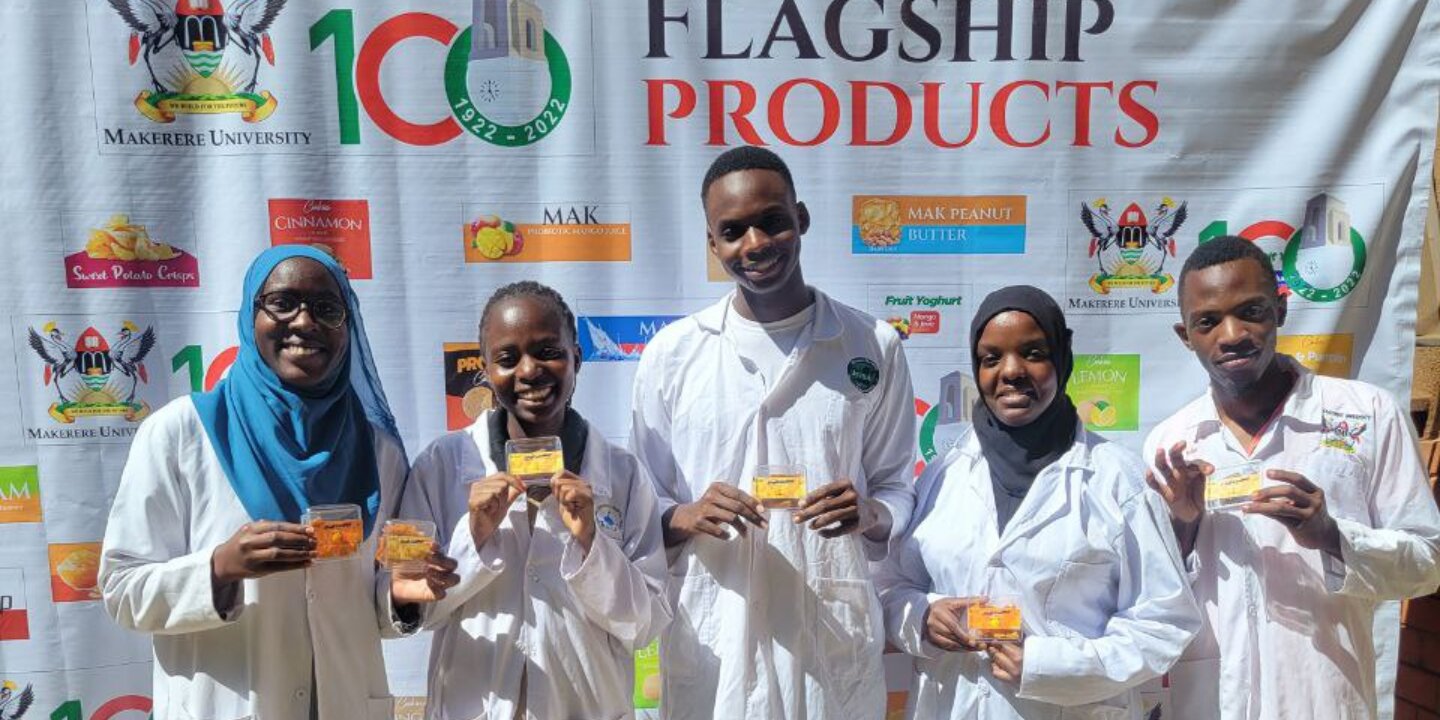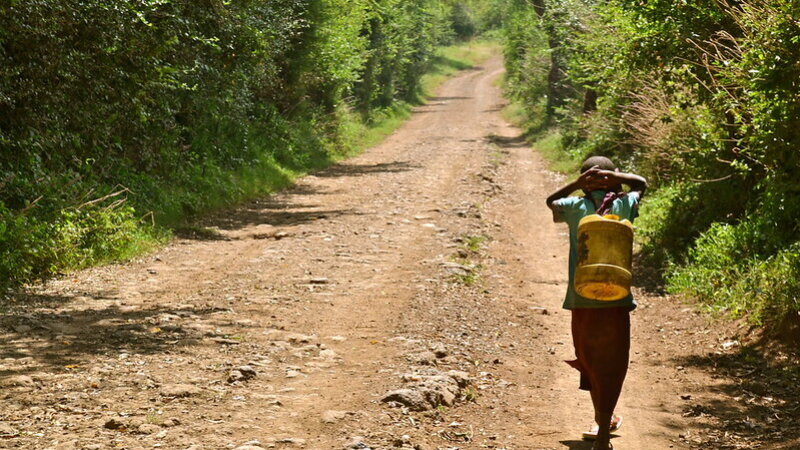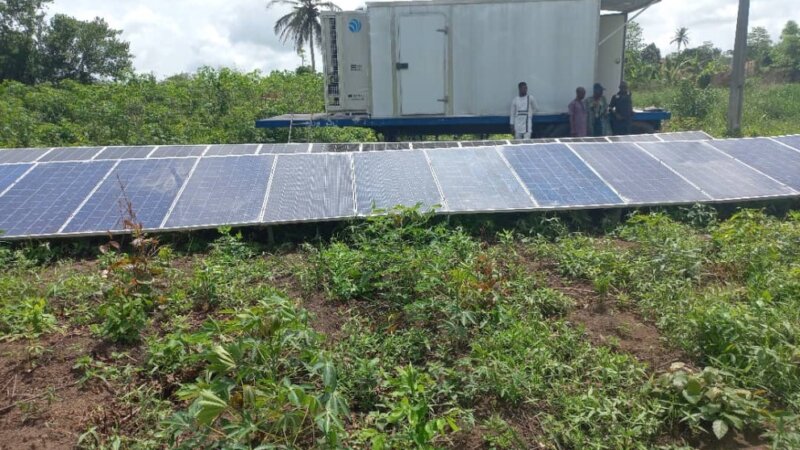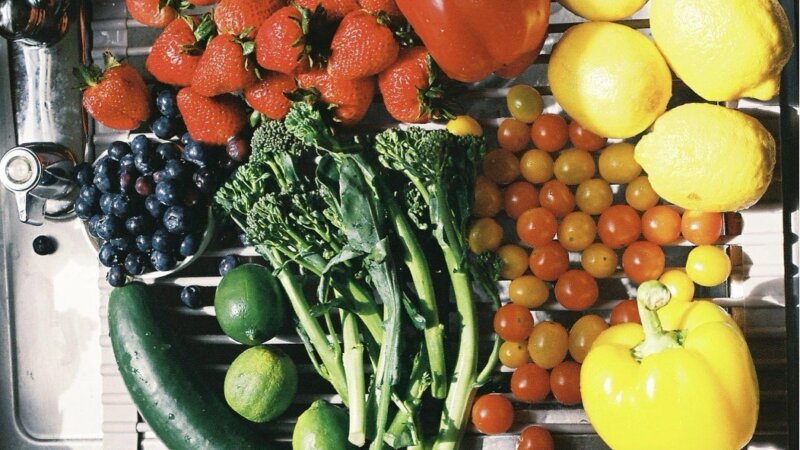From Waste to Taste: The Fruitastic 5's Innovation Journey

Team Fruitastic 5
Makerere Univeristy is one of the nine universities participating in the Food Systems Innovation challenge 2024. In this challenge 18 teams are asked to develop a Food System Innovation within their local context. Uganda faces a significant challenge with jackfruit wastage, with 30% to 40% of harvested fruit ending up as waste due to over-ripeness or transportation damage, according to FAO 2021. Fruitastic 5, a team of five students from Makerere University, is tackling this issue head-on by developing edible-quality jackfruit leather snacks from overripe fruit. Their innovative solution aims to reduce waste and improve local economies. We asked the Fruitastic 5 team to share their story!
Our journey began at Makerere University's School of Food Technology, Nutrition and Bio-Engineering, where we learned about the Food Systems Innovation Challenge from our mentor, Dr. Fildah Ayaa. Inspired by the opportunity, we pitched our idea to address the problem of overripe fruit spoilage that plagues many Ugandan fruit producers. Our proposal was selected to participate in the Food Systems Innovation challenge, giving us the chance to put our plan into action with full support from Dr. Fildah Ayaa alongside other professors at our school.
Our innovation is developing edible-quality jackfruit leather snacks from overripe jackfruit while minimizing changes to the nutritive contents of the fruit. We aim at extending its shelf life, thus reducing the numerous incidences of overripe jackfruit that lead to significant fruit waste.
With support from our school’s Bioprocessing Engineering Extension Lab for product development and Wageningen University, we have been able to successfully develop our jackfruit leather recipe and purchase necessary equipment. Additionally, we conducted a sensory evaluation test within our school premises to ascertain the product’s acceptability using parameters like taste, color, appearance and aroma. During our market research and fact-finding visits within local markets in Kampala, we interacted with a few vendors who confessed to either discarding overripe jackfruit at the end of the day or selling it at extremely low prices.

Jackfruit leather packed in plastic containers. Photo from team Fruitastic 5
Our findings have convinced us of the viability of this innovation. We are optimistic that, as we move forward, this breakthrough has the potential to drive meaningful, positive change such as improving nutritional outcomes, reducing food waste, and minimizing the losses endured by market vendors and farmers, thereby boosting local economies.
The Food Systems Innovation challenge has been a valuable avenue for opportunities and growth. Through this initiative, we have gained invaluable insights about community engagement and entry, as well as usage of resourceful tools like Canva to design our posters, business cards and enhance our presentations and also learned about website development. Additionally, we have been afforded the chance to attend business startup training sessions at the Makerere University Innovation Hub, equipping us with essential entrepreneurial skills. We have also had various platforms to pitch and showcase our product to different stakeholders, both within and outside the Makerere University network. These experiences motivated us to experiment with other fruits like mangoes and pineapples. We were successful in creating blends like jackfruit and pineapple leather, which were surprisingly popular with tasters at school.
Our primary challenge has been selecting the most environmentally friendly packaging without causing drastic changes to the estimated selling price for the jackfruit leather. Additionally, quantifying the volume of jackfruit that goes to waste in local markets has proven to be a considerable hurdle. In this regard, regrettably, some of the vendors we approached were hesitant to share related information.
In the coming months, our main focus will be to conduct a nutritional analysis test for our product, finalize the packaging, determine the maximum shelf life, and quantify the volume of jackfruit we can source from markets that would otherwise go to waste in order to provide a healthy, nutritious, and quality product to our consumers. We ultimately hope to create a profitable and sustainable business that will not only develop a thriving market for jackfruit-based products but also mitigate fruit waste through the development and distribution of nature’s sweetest fruit snacks made with care. Furthermore, we are preparing for the finals of the Food Systems Innovation challenge on 30 September at Wageningen University where we will pitch our idea.
We are truly grateful to Wageningen University for providing this invaluable opportunity, and we are excited to continue learning and growing in the months ahead with the support of our dedicated team and the guidance of our mentors!
More information about the Food Systems Innovation Challenge can be found on the website or on our community page.
Author

Maaike de Wit
Communication Coordinator WUR Student Challenges (Wageningen University & Research)





